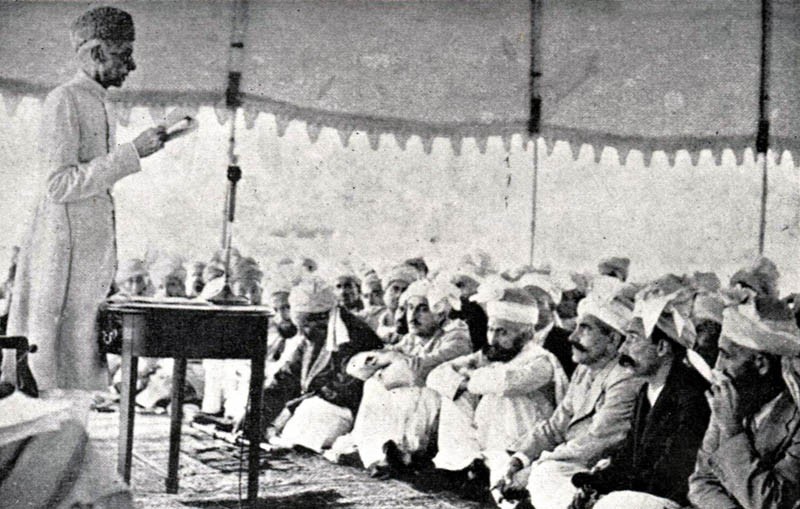
Peace in the region will remain elusive without mainstreaming Fata

For how long the people of Fata, Pakistanis by the Constitution, would have to rummage for a better life for themselves and their generations?
The history of the ancient tribal belt is not yet known, except for tribal records. Successive invaders integrated this area into their kingdom -- the Aryans (500 BC), the Achaemenids (Persians) Graeco-Scythian (324-320 BC), Maurians (313-232 BC), Graeco-Bactrians (185-90 BC) and Sakas (Central Asians) (97 BC). A thousand years after the death of Alexander, to the spread of Islam in this area, there were numerous invasions by various invaders.
The region now included in Afghanistan and Khyber Pakhtunkhwa of Pakistan was invaded in history frequently. The invasions in this area are higher in number compared to the rest of Asia and probably in the entire world. During all this time, the region had been dominated by great powers. However, the local tribal structure helped the inhabitants in continuing with their independence.
Under the British rule, the tribal Jirga system was kept intact. The Jirga took decisions in both civil and criminal cases and its decisions were unanimous. The British, however, modified it to some extent and gave it legal legitimacy. The British also introduced Frontier Crimes Regulation (FCR). The FCR authorised the British appointed political agents to mark local criminal and civil suits to the respective Jirga.
Just before the creation of Pakistan in June 1947, Quaid-e Azam Muhammad Ali Jinnah met Ghaffar Khan in Delhi to negotiate conditions for cooperation. Ghaffar Khan agreed to support the idea of Pakistan on the condition that in the new setup tribal areas will be merged with settled areas of NWFP. Jinnah agreed to it as per the report in The Dawn dated December 23, 1969. Subsequently, as per historical records, a new agreement was reached with tribal chiefs to maintain the existing arrangements in tribal areas in exchange for support to Pakistan. The agreement thus reached was revised by the government in 1952 to gain greater control over the tribal areas.
In 1970, the tribal areas of Dir, Swat, Chitral, Malakand and Hazara were included in the NWFP (now KPK) while the rest of tribal areas were declared as Federally Administered Areas (Constitution of Pakistan, 1973). Thus, two tribal areas were created in the North of Pakistan. Federally Administered Tribal Areas (Fata) and Provincially Administered Tribal Areas (PATA) of NWFP. The administration of Fata was entrusted to the federal government through the governor of NWFP (Constitution of Pakistan, 1973). No doubt, such constitutional position of Fata was created to guard the Durand Line as an international border and to focus on the highly underdeveloped and poverty-stricken area of the country.
Administratively, Fata consists of two kinds of areas. It comprises 7 Political Agencies (Bajaur, Mohmand, Khyber, Orakzai, Kurram, North and South Waziristan) and 6 Frontier Regions (Peshawar, Kohat, Bannu, D I Khan, Tank and Lakki Marwat). These areas were controlled through political agents by the government until recently.
Though the people of Pakistan have been enjoying adult franchise for the electoral process since 1947, the people of Fata remained deprived of this right until 1997, when for the first time this right was given to the people but for an election on non-party basis, unlike the rest of the country. The people of Fata welcomed this decision enthusiastically.
Despite getting the right of adult franchise, the people of Fata are still deprived of a number of rights guaranteed under the Constitution of Pakistan because the area is still under the tutelage of FCR. For instance, Pakistan’s apex court is barred from exercising authority over Fata and political parties are not allowed to operate in the area. This gave eminence to the appointed political agents as well as local tribal elders. They enjoyed sovereignty over the area and exercised a life of luxury and exploitation, putting the general Fata masses under extreme poverty and deprivation.
After getting adult franchise in 1997, the people of Fata were allowed to take part in the first-ever general elections on a party basis in May 2013. This transition in the electoral process of Fata region was both an opportunity as well as a challenge. It was an opportunity as the process could lead to the development of democratic institutions in the area ultimately, ending the under-developed status of masses in Fata. At the same time, it was also a delicate transition from tribalism to democratisation, which requires attention and care of higher degree.
There are some hindrances that could possibly keep the government from implementing Fata reforms. One of the major barriers to the implementation of reforms is the strong opposition by tribal elders as some of them believe that the reforms are a threat to the prehistoric norms and cultural practices prevailing in Fata for a long time.
The reform process should take an integrated approach to bring all the stakeholders on the same page. The reforms should also focus on strengthening institutions with gradual approach to influencing norms and culture of tribal Pashtun. Local politicians must be on board to negotiate some of the bottlenecks such as girls’ education and women participation in votes.
Without mainstreaming Fata, peace would remain elusive as no amount of military operations and sacrifices by the nation could ensure peace unless backed up by new economic opportunities for the people of Fata.